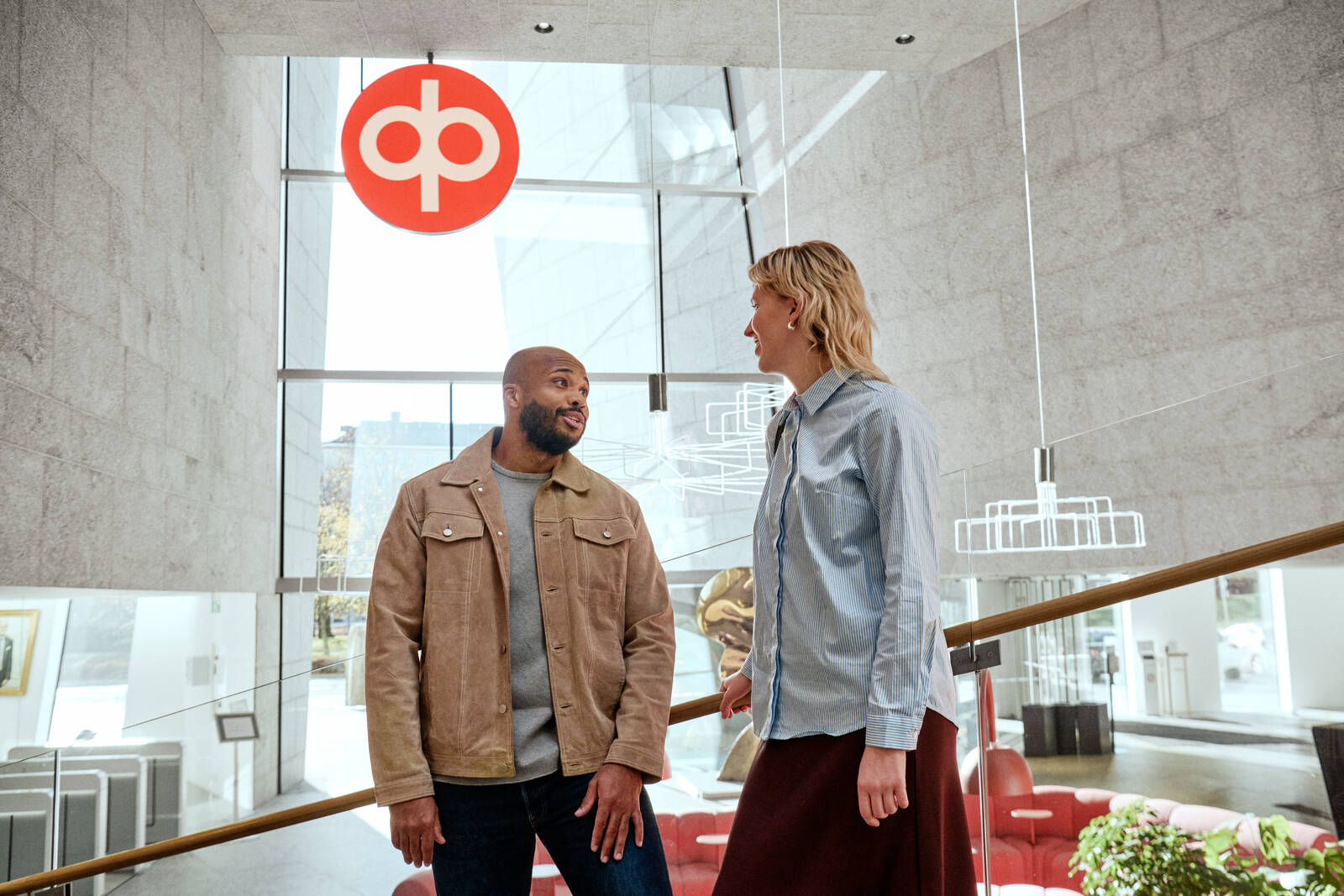Johtamisen periaatteet ja työskentelytapamme
Me OP Pohjolassa uskomme, että hyvinvoiva henkilöstö luo parhaan asiakaskokemuksen. Ketterä kulttuuri, valmentava johtaminen ja modernit työtavat mahdollistavat onnistumisen, kehittymisen ja yhteenkuuluvuuden – paikasta riippumatta.

Hyvällä työntekijäkokemuksella paras asiakaskokemus
Haluamme tarjota asiakkaillemme parasta asiakaskokemusta. Tärkein onnistumisen avain tällä matkalla on työntekijäkokemus – toisin sanoen se, millä fiiliksellä työntekijämme työskentelevät, kohtaavat asiakkaita ja rakentavat tulevaisuuden OP Pohjolaa.
Ketterän toimintakulttuurin avulla haluamme parantaa asiakaskokemusta, työntekijäkokemusta ja toiminnan tehokkuutta ja laatua. Ketterässä toimintakulttuurissa keskiössä ovat asiakasarvon tuottaminen, uudistumiskyky, autonomiset tiimit, jatkuva parantaminen ja oppiminen.
Ketterä toimintatapa perustuu neljään periaatteeseen, jotka ovat yhteisiä koko OP Pohjolalle. Periaatteet auttavat meitä valintatilanteissa ja luovat pohjaa jatkuvalle parantamiselle.
- Asiakas on aina toimintamme keskiössä
- Reagoimme nopeasti ja korjaamme suuntaa tarvittaessa
- Vastuu on itseohjautuvilla, moniosaavilla tiimeillä
- Toimintamme on läpinäkyvää
Johtamisen periaatteet OP Pohjolassa
Johtaminen on ennen kaikkea suuntaviivojen antamista ja tiimien menestymisen mahdollistamista. Valmentavalla johtamisotteella luodaan turvallinen ja mukaan ottava ympäristö, joka kannustaa itsenäiseen vastuunottoon ja onnistumiseen näytetyssä suunnassa. Jokainen työntekijämme saa hyödyntää vahvuuksiaan ja erilaisuuttaan toteuttaakseen yhdessä määritellyt tavoitteet. Työhyvinvointi ja työntekijäkokemuksen edistäminen ovat olennainen osa johtamista.
Johtamisen periaatteiden mukaan toimiminen ei ole ainoastaan johtotehtävissä työskentelevien vastuulla, vaan autonomisissa tiimeissä asiantuntijat voivat soveltaa johtamisen periaatteita myös oman työnsä johtamisessa tiimin jäsenenä.
